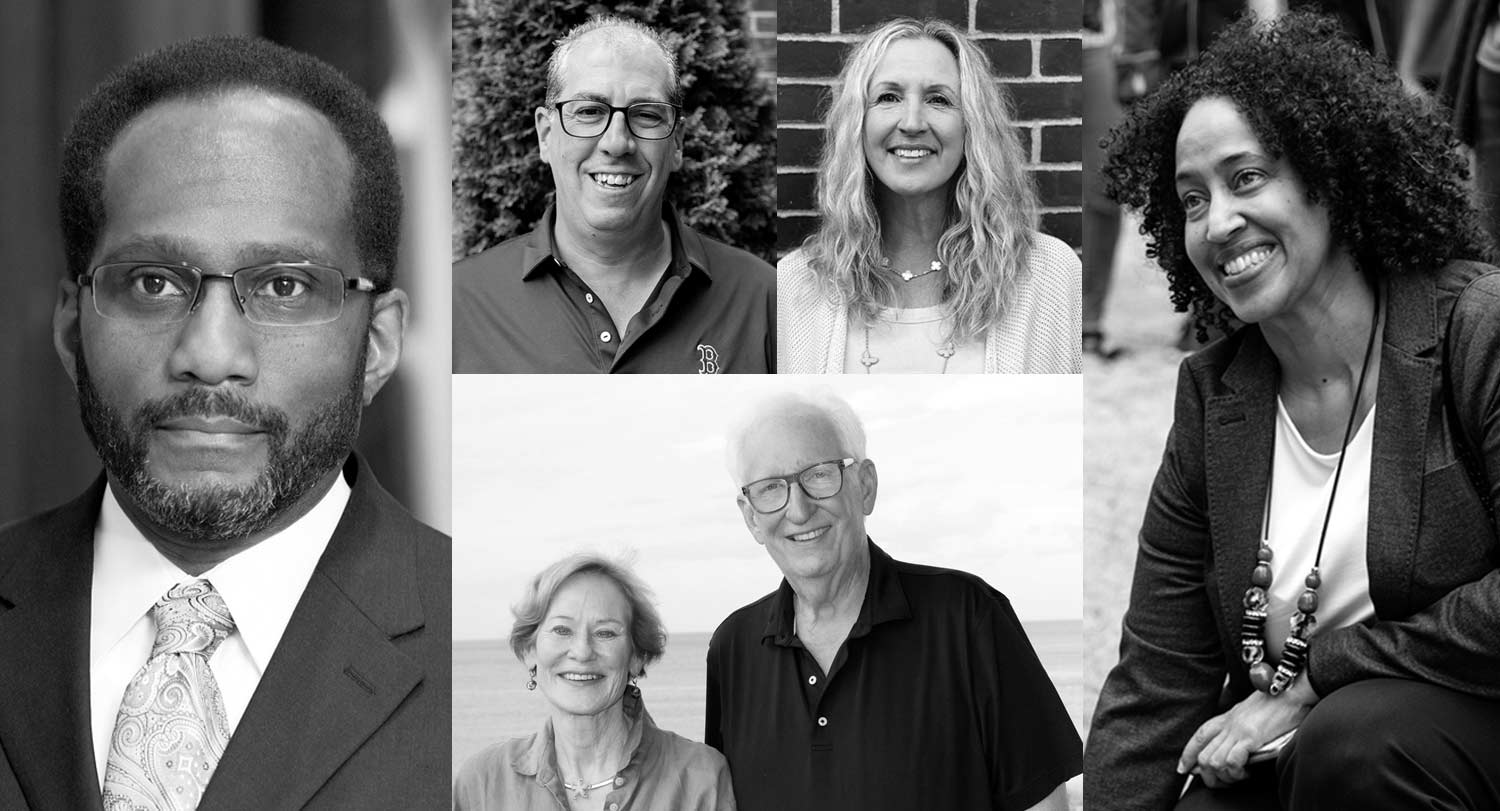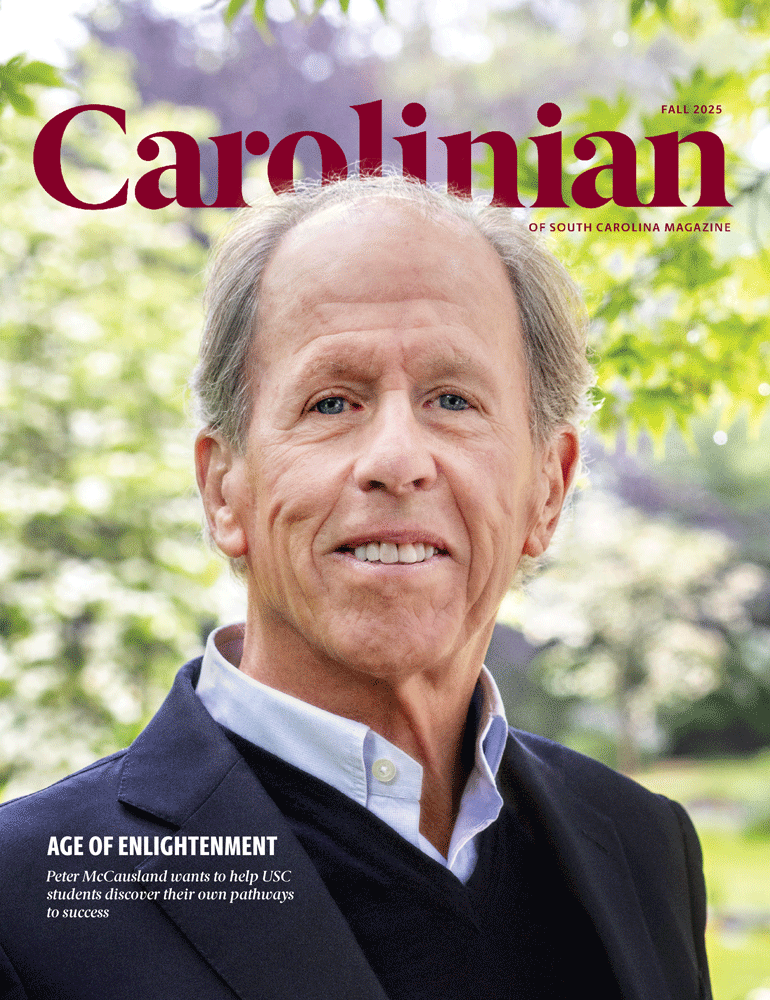Whether contributing to a scholarship fund, supporting important research, endowing a professorship or just pitching in, Gamecocks have a knack for giving back. The real investment, though, isn’t measured in dollars and cents. It’s measured in the difference our generosity makes in the lives of others and in the betterment of society. To paraphrase the wisdom that donor Everett McAllister shares with pharmacy students, it’s not about us.
Enabling Education | Tjuan Dogan
Tjuan Dogan has a simple request for the endowed scholarship she has funded at the USC College of Education — invest in the next generation of educators, like the ones who helped her find her own path and passion.
“At USC I had some incredible teachers and mentors who helped to shape my leadership capacity and my interest in the world, and who put me on a great career path,” Dogan says. “In short, I want to give that back to the university. I want to invest in other dream makers.
“I think it’s an honor to invest in a dream. But for me, when you invest in a teacher, you’re investing in a dream maker.”
Dogan, a native of Greenville, was pursuing a master’s in education — and meanwhile working as a graduate assistant for College of Education professor Aretha Pigford — when a door opened.
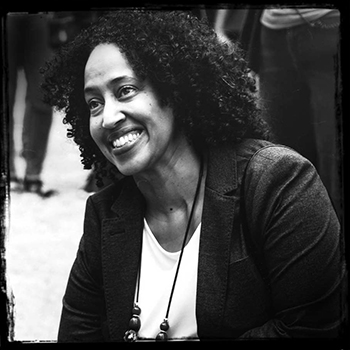
Tjuan Dogan
Pigford was at that time developing USC’s African American Professors Program, which provides scholarships and helps prepare underrepresented, ethnically diverse students to become professors. Now known as the Grace Jordan McFadden Professors Program, it has helped more than 80 doctoral and MFA candidates pursue their dreams since 1997.
Dogan, who earned a bachelor’s in advertising in 1991, joined the program’s inaugural cohort.
“The professors program allowed me to earn my Ph.D. with my tuition fully funded,” she says. “It was an incredible opportunity that helped decrease financial barriers and allowed me to pursue my doctorate full time.”
Armed with her Ph.D. from USC in 2002, Dogan completed a yearlong fellowship at Harvard Business School. She then headed to Atlanta and has held positions in philanthropy and social responsibility with the Southern Education Foundation, the Arthur Blank Family Foundation, the IBM Foundation and Emory University.
She now works as global director of social impact at Coursera, a platform for online learning and career development. Coursera works with universities and companies around the world to offer online classes, certificates and degree programs to nontraditional students.
For Dogan, education is a lifelong pursuit. Twenty years after completing her doctorate, she went back to school — the seminary this time — and earned a master’s in religion and public life from Candler School of Theology at Emory.
“The Gospel of Luke shares that to whom much is given, much is required,” she says. “I have been incredibly blessed to advise and work with investors, corporations and foundations on how to support education programs around the globe. I do that in my job. And so, I’m grateful that I’m at a point in my career where I can advise myself on doing the same.”
She’s been a consistent donor throughout her career and is now ready — and able — to create a scholarship at the College of Education. The Dr. Tjuan Dogan College of Education Endowed Scholarship is designed to invest in future educators, the people who will help encourage, inspire and support the dreams of the next generation.
Education, she believes, is the great equalizer — and exposure to education offers people the opportunity to make the world a better place. It’s something she learned at home, where her mother, grandmother and other family members were educators; her mother also earned her graduate degree from the USC College of Education.
“While the scholarship bears my name, it’s also for my family who supported me and those educators who made a difference in my life and in so many other people’s lives,” she says. “It brings me a lot of pride and joy to be in a position to do this.”
Dogan was one of 18 Black women alumni whose contributions to the university were honored with a brick on the historic Horseshoe in 2023. Her brick lists her name and degrees, but she also requested it include another word: persevere.
“The scholarship is my way of saying to any of those students, ‘persevere,’ just like I had to and just like other people encouraged me to,” she says. “Creating the scholarship is an opportunity to not only say ‘persevere,’ but to really show students that I want to help them pursue their dreams and persevere.”
Focus on Fragile X | Brian and Rachel Clouse
Brian and Rachel Clouse’s connection to the University of South Carolina came about by chance. Or maybe serendipity.
The couple’s two daughters, Livia and Amanda Joy, have fragile X syndrome, the most common inherited cause of intellectual disabilities and intellectual impairment. Fragile X is caused by a single gene not producing a protein that is crucial for neurological development and brain function. After their youngest daughter was diagnosed at 8 years old, Rachel Clouse was tested and learned she is a carrier of the FMR1 premutation.
But as they began their journey, the Clouses couldn’t find much information available about fragile X — especially for cases involving females. Most research and treatment focuses on males with fragile X, since their conditions are typically more severe.
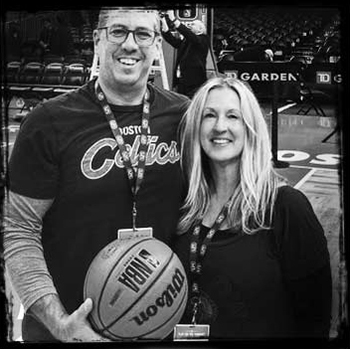
Brian and Rachel Clouse
“This was in 2010, when we were trying to find out more about fragile X and there was just so little out there,” Brian Clouse says. “For years we just kind of stuck our head in the sand and said, ‘Well, this is who she is and there’s nothing out there to help her.’ It wasn’t until she was in high school that we realized she needed some more support, that she wasn’t going to grow out of her issues.”
In 2019, the Clouses moved from Florida to Massachusetts seeking better opportunities for their daughters. They also started the LivJoy Foundation to support females living with fragile X.
Meanwhile, Rachel Clouse was active on Facebook groups of fragile X families when she saw a notice from USC’s Arnold School of Public Health looking for aging, healthy females with the premutation of fragile X to participate in a study. She contacted USC researchers Jessica Klusek and Jane Roberts, whose work includes studying various aspects of fragile X in females.
Rachel Clouse came to USC for the study, and the couple was so impressed with the work being done that they decided to support the research with a grant from the LivJoy Foundation. “We met for lunch, and we were so excited that we could do something together and we could support them,” she says. “Our relationship was meant to be.”
The grant to the Arnold School will support a fellowship to hire a postdoctoral researcher in the Department of Communication Sciences and Disorders.
Klusek says the lack of researchers working on fragile X limits both research output and the field’s training pipeline. This postdoc fellowship will provide a way to support new junior scientists as they study fragile X and make contributions to the field well into the future.
“We are so thrilled to partner with the Clouses, as our research team here at USC has long recognized the serious research gaps when it comes to girls with fragile X,” Klusek says. “The LivJoy Foundation postdoc fellowship is going to have an enormous impact on the landscape of the fragile X field.”
Nurse Leaders of Tomorrow | Mary Morin and David Spinazzolo
When David Spinazzolo was looking for a way to honor his wife and promote leadership in health care, he turned to his alma mater — the University of South Carolina.
Spinazzolo, psychology ’73, is the president and CEO of Metropolitan Solutions Group Inc., a nationally recognized leader in environmental engineering, health, safety and training services. His wife, Mary M. Morin, is the chief nurse executive of a large health system in Virginia. Her career has included stints as a military and hospital nurse along with management and educational roles.
“She’s had a very successful career in nursing. She’s achieved a lot,” Spinazzolo says. “She’s very committed to improving the nursing profession.”
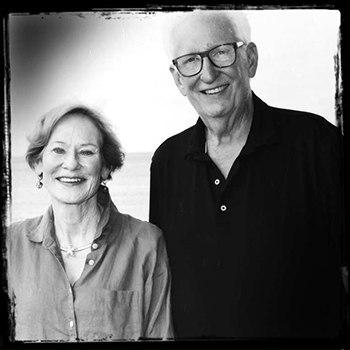
Mary Morin and David Spinazzolo
Now, a USC graduate student in nursing will benefit from a fellowship set up by Spinazzolo to honor that legacy. The Mary M. Morin Nursing Leadership Endowed Fellowship Fund will provide a fellowship for a USC graduate student pursuing a degree in health care leadership.
“One of the things that I’m interested in is promoting and fostering student initiative and leadership,” he says. “This is a gift that’s designed toward fostering somebody who wants to progress in a leadership role.”
Spinazzolo says he believes Morin’s long career in nursing can inspire current and future USC students.
After graduating from George Mason University with a degree in nursing, Morin joined the Navy as an officer and a nurse. While in the Navy, she was selected to take care of President Ronald Regan during an elective surgery. She currently works as the chief nurse executive with Sentara Health Systems, which operates 12 facilities in two states with 20,000 clinicians.
“She’s been at the bedside. She’s been in all the various elements of management. She’s done auditing,” he says. “I thought she would bring as much to the university in terms of any gift that I could give. So, it’s a twofer. I’ll give the money for the scholarship, and the university gets to benefit from her experience.”
Morin wasn’t aware her husband was setting up the scholarship in her name — Dean Jeannette O. Andrews surprised her with the news. And the College of Nursing is ready for the gift to help a graduate student who will go into nursing and health care leadership.
“Without the generous support of our donors, such as David and Mary, many of our students would not have the opportunity to pursue their nursing dreams and achieve their full potential,” Andrews says. “Their contributions not only alleviate the financial burden on our students, but also inspire them to excel academically and contribute positively to our profession. We are deeply grateful to their commitment to the College of Nursing and their belief in our students’ futures.”
Obligation to Support | Everett McAllister
Whether it was serving in the ROTC at Carolina, spending 26 years as a pharmacist in the Air Force or helping others as a licensed minister, Everett McAllister, pharmacy, ’84, takes his responsibilities seriously.
And one those responsibilities, he says, is giving back.
“The university has been instrumental in my life and provided opportunities I don’t think I would have had otherwise,” he says. “I have a responsibility to help others along the way, and we have an obligation to support those who are coming behind us, to pull others along.”

Everett McAllister
The onetime College of Pharmacy Outstanding Alumnus Award winner lends his financial support to USC, making donations to the Carolina Fund, the College of Pharmacy’s scholarship and student support funds, and the Inclusive Excellence Grant Fund.
McAllister grew up in a military family and moved to Darlington, South Carolina, from California when he was in the third grade. Before deciding on USC and pharmacy, he visited campus and requested a meeting with the dean.
“I wanted to find out exactly what I was getting into, because there were no pharmacists in my family,” he says. “And the dean was very helpful and very encouraging. There were a number of professors who were the same way.”
McAllister considered going into medicine but worried about the time commitment necessary to become a physician. He figured if he went into pharmacy and changed his mind later, pharmacy would be a natural pathway into medicine since there were many similarities between the two disciplines.
Instead, he found he enjoyed life as a pharmacist — especially the contact with patients.
“When I was practicing, I would see many of my patients monthly,” he says. “This allowed me to really see how they were doing. They would come in and get their prescriptions, and we would have conversations about how things are going. Oftentimes they would share things with me that they wouldn’t share with the doctor.”
After earning his degree from USC, he expected to fulfill his ROTC-required four-year military commitment and then head for private practice as a pharmacist. But the military offered some other opportunities that were hard to pass up.
“It seems like the system would always offer you an opportunity that you hadn’t thought about. I had a chance to go overseas to the Azores. I found the job provided a lot of leadership opportunities. Every day was a little bit different. You weren’t always filling prescriptions. And that was one of the things that was attractive about the military.”
So he got involved in education and training, did some teaching and moved into administration. His final two assignments with the Air Force were at the surgeon general’s office and at the Pentagon.
He retired and took some time off to spend with his wife and two sons. He then served as the executive director and chief executive officer for the Pharmacy Technician Certification Board before answering another call — this time to the ministry.
“I had this calling for a while, and I had ignored it, but I believe God has a way of getting your attention, so I went from the physical healing to the spiritual healing. My previous career and life experiences have helped equip me to do what God has called me to do. That’s how I look at it. And there was some melding between the two.”
McAllister now lives in northern Virginia, just outside Washington. He graduated from Wesley Theological Seminary and works with his local church, teaching a Bible certificate program.
Along with his donations to help students at USC, he also has advice for the students who attend the College of Pharmacy.
“It’s not about us. It’s about opportunities that we can provide for our patients and providing the best care. It’s about being accessible, being approachable,” he says. “There are so many opportunities to improve the lives of our patients. There’s a tremendous opportunity to engage individuals and communities to help them get better. Tomorrow’s successes are underwritten and assured by the continued investment in those that will follow.”
